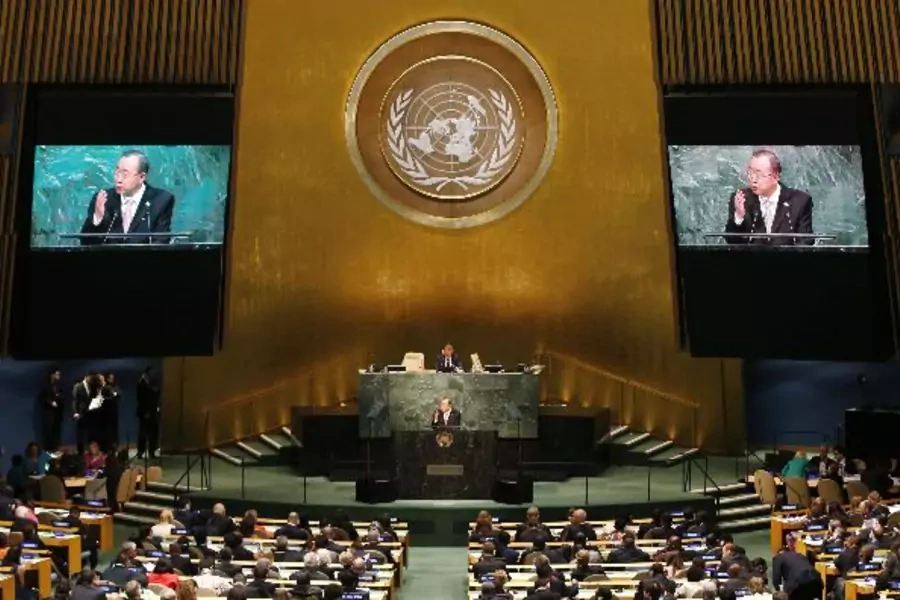This Week in Markets and Democracy: U.S. Fights Corruption, Preventing Mass Atrocities, and More

More on:
CFR’s Civil Society, Markets, and Democracy (CSMD) Program highlights noteworthy events and articles each Friday in “This Week in Markets and Democracy.”
The U.S. Fight Against International Corruption
What do kleptocrats in Nigeria, South Korea, Equatorial Guinea—and as of this week, Malaysia—have in common? Fear of the U.S. Department of Justice (DOJ). Over the past five years its Kleptocracy Asset Recovery Initiative has investigated and prosecuted corruption cases from each country, recovering over $600 million in ill-gotten assets. Increasingly active prosecutors trace and seize money that comes within U.S. borders, or through U.S.-based banks, revealing New York luxury apartments purchased through shell companies, bank accounts worth hundreds of millions, California beach homes, and even $1 million in Michael Jackson memorabilia. They don’t always succeed—the DOJ had recovered just half of its outstanding claims as of last year, the majority coming from one $480 million settlement involving former Nigerian dictator Sani Abacha. And not all the money makes its way back home, as DOJ has a less-than-perfect track record in victim compensation. But it remains one of the most effective U.S. tools against global corruption, as long as kleptocrats prefer to “invest” their money in more stable Western markets.
Using Data to Head off Future Atrocities
This week the United States Holocaust Memorial Museum (USHMM) launched The Early Warning Project, designed to prevent the very acts of genocide the museum commemorates. Its statistical assessments use historical indicators including political violence, infant mortality, and state failure to determine the countries most at risk of mass atrocities, defined as state-led killings of over 1,000 people. Myanmar and Nigeria top their rankings based on 2014 data. Nigeria seems to have overcome the immediate threat, completing the first peaceful power transfer in the country’s democratic history (though Boko Haram-perpetrated killings and alleged military abuses in the counterattack continue). Myanmar is still playing out in the run up to November’s parliamentary elections. Disenfranchised, the Muslim ethnic Rohingya minority continues to face systemic and escalating discrimination. And Myanmar’s election commission last week disqualified almost all Muslim opposition candidates (then reinstated eleven), threatening an already fragile democratic transition. By identifying elevated risks in fifty countries—including Sudan, Egypt, and Afghanistan—the USHMM hopes to galvanize global attention and action.
What We are Reading on the UN’s New Global Goals
Today world leaders adopted seventeen new Sustainable Development Goals (SDGs) at the United Nations (UN) General Assembly. Aiming to eliminate extreme poverty by 2030, targets range from reducing inequality and ending hunger to action on climate change. Here is what others are saying about the new development agenda:
The word “sustainable” is used more than seventy five times in the text of the seventeen SDGs—but what does it mean? NPR talked to the Center for Global Development and other experts to find out.
In a Huffington Post op-ed, U.S. National Security Advisor Susan Rice argues that the new UN development agenda is critical to U.S. national security, particularly SDG goal 16: good governance.
Others are less enthusiastic about SDG 16. Matthew Stephenson, writing for The Global Anticorruption blog, argues that while the agenda’s anti-corruption focus is important, the goal will be difficult to measure and ultimately may prove counterproductive.
Finally, FastCoExist argues that by painting an overwhelmingly positive picture of the SDGs without explaining poverty’s complexities, the UN may do a disservice to finding solutions needed to end it.
More on:
 Online Store
Online Store